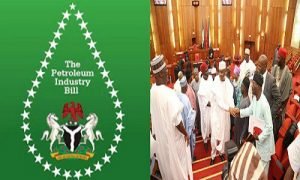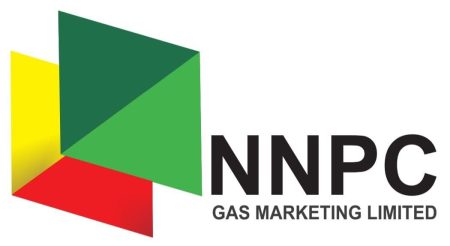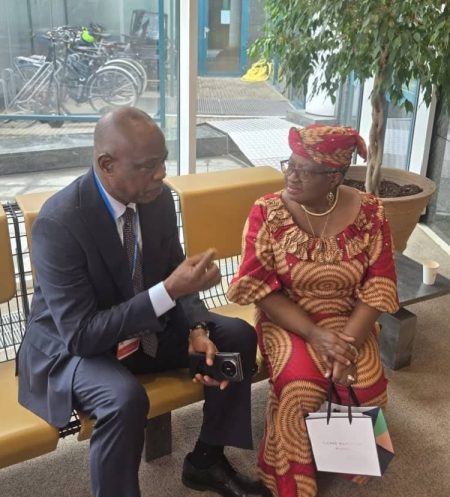…Insist on 10% host Community Fund, others

Sam Ikeotuonye & OpeOluwani Akintayo
Lagos — The passage of Nigeria’s long-awaited Petroleum Industry Bill, PIB, into law by the National Assembly may suffer fresh delays over new demands by leaders of oil producing states for an upward review of the Host Community Trust Fund for oil-bearing communities in the Bill from 2.5 percent to 10 percent.
A report by Reuters says a meeting in Abuja earlier this week saw the community leaders press hard their demands to increase their share of petroleum produced in their regions to 10 percent – up from 2.5 percent, and that this could stall progress on the Bill and push its passage till late this year.
The outcome of the meeting is in line with the position of the South-South Governors’ Forum, which had earlier in March this year sought an upward review of the 2.5 percent prescribed in the proposed law to 10 percent.
Other demands by the leaders at the Abuja meeting are proposals to publicly sell the shares of the Nigerian National Petroleum Corporation, NNPC, and the implementation of market-based prices for gas to power.
Communities in Lake Chad region and the middle or north central region of the country are also seeking a greater share of oil revenues, Reuters said, quoting unnamed four sources.
These fresh demands are coming a week before the latest deadline set by the National Assembly to passing the Bill.
Overhauling of the PIB has been in the pipeline for 20 years now, and the National Assembly is due to go on recess early July, to resume in September.
SweetcrudeReports reports that while canvassing for a review of the Host Community Trust Fund from 2.5 to 10 percent in March this year, the Chairman of the South-South Governors’ Forum and Governor of Delta State, Ifeanyi Okowa, said: “We took up the issue of the PIB, which is already before the National Assembly. And having compared notes, we are of the view that while we welcome the Host Community Trust Fund, we do believe that the 2.5 per cent that is appropriated in that bill is inadequate.
“We have discussed with our people and collectively as leaders, we urge the National Assembly to increase the provision from 2.5 to 10 per cent in the best interest of our communities and the nation.”
The governors were of the view that the communities would protect Nigeria’s oil infrastructure better if adequately taken care of.
Lagos-based consultancy Financial Derivatives Company Limited said the failure to pass the PIB over time has cost Nigeria some $15 billion annually in lost investment.
“With the global shift from fossil fuels to renewable forms of energy picking up pace, the passage of the (overhaul) may just be too little too late,” FDC wrote. “It is unlikely that Nigeria will be able to make up for either the lost time or the lost investment.”
Two sources, speaking on condition of anonymity, said Petroleum Minister Timipre Sylva had backed floating NNPC shares, which could allow the financially strapped company to raise money and operate more efficiently, according to the report.
However, the diminished state control that an NNPC share float would bring, according to the report, appears to threaten its chances.
Sylva is also said to have pressed for market-based prices for gas in the power sector, which experts say would boost investment in Nigeria’s challenged power sector.



